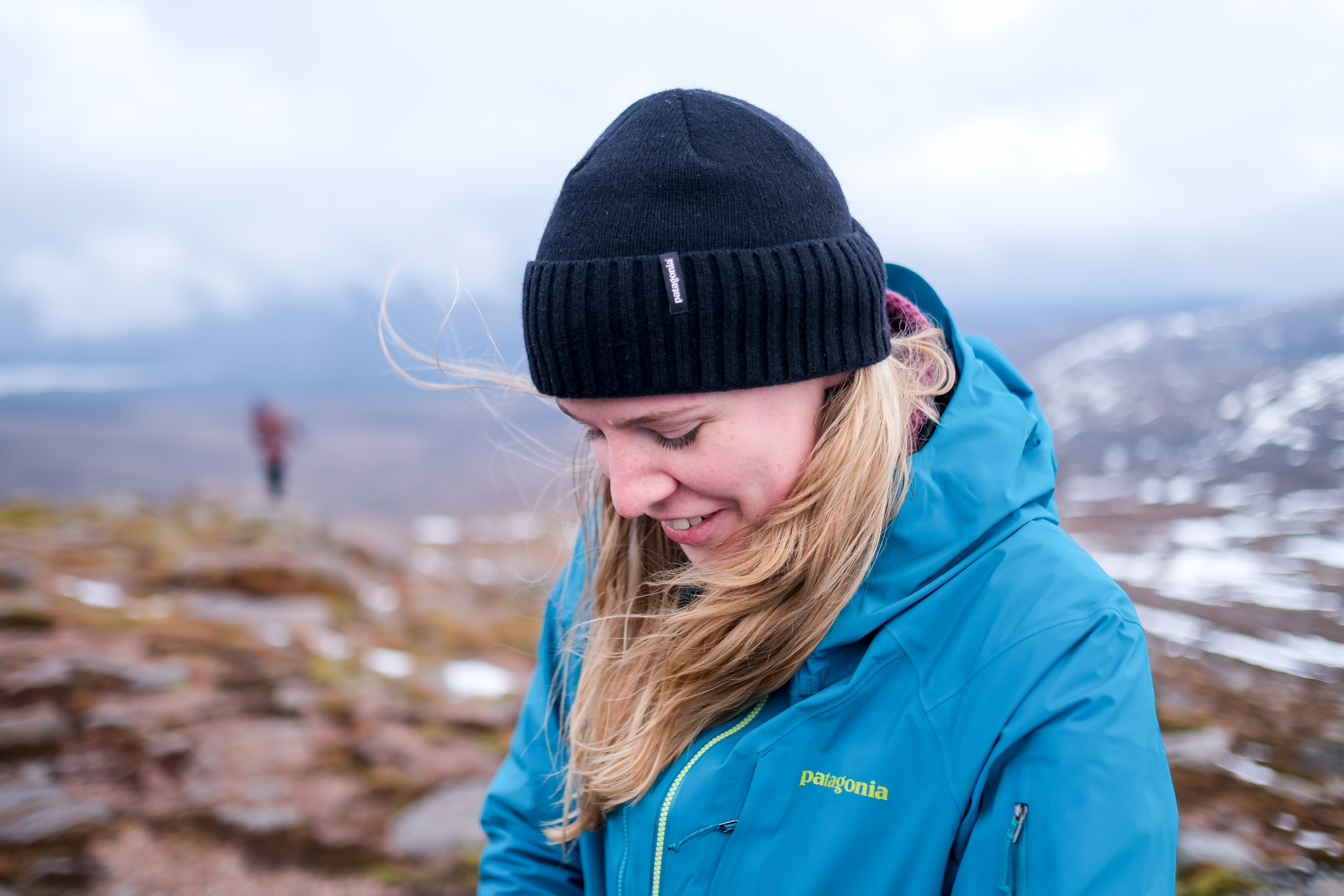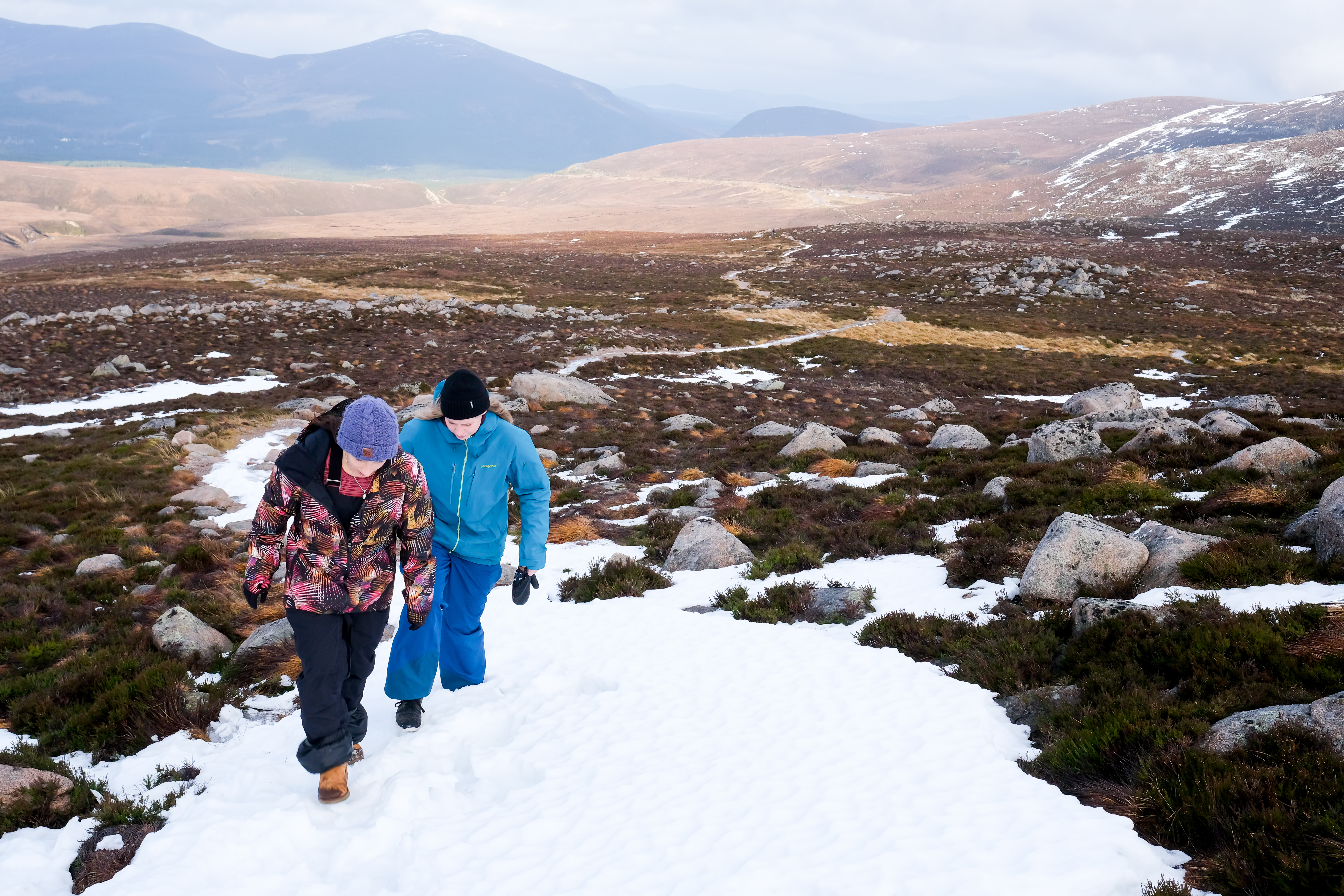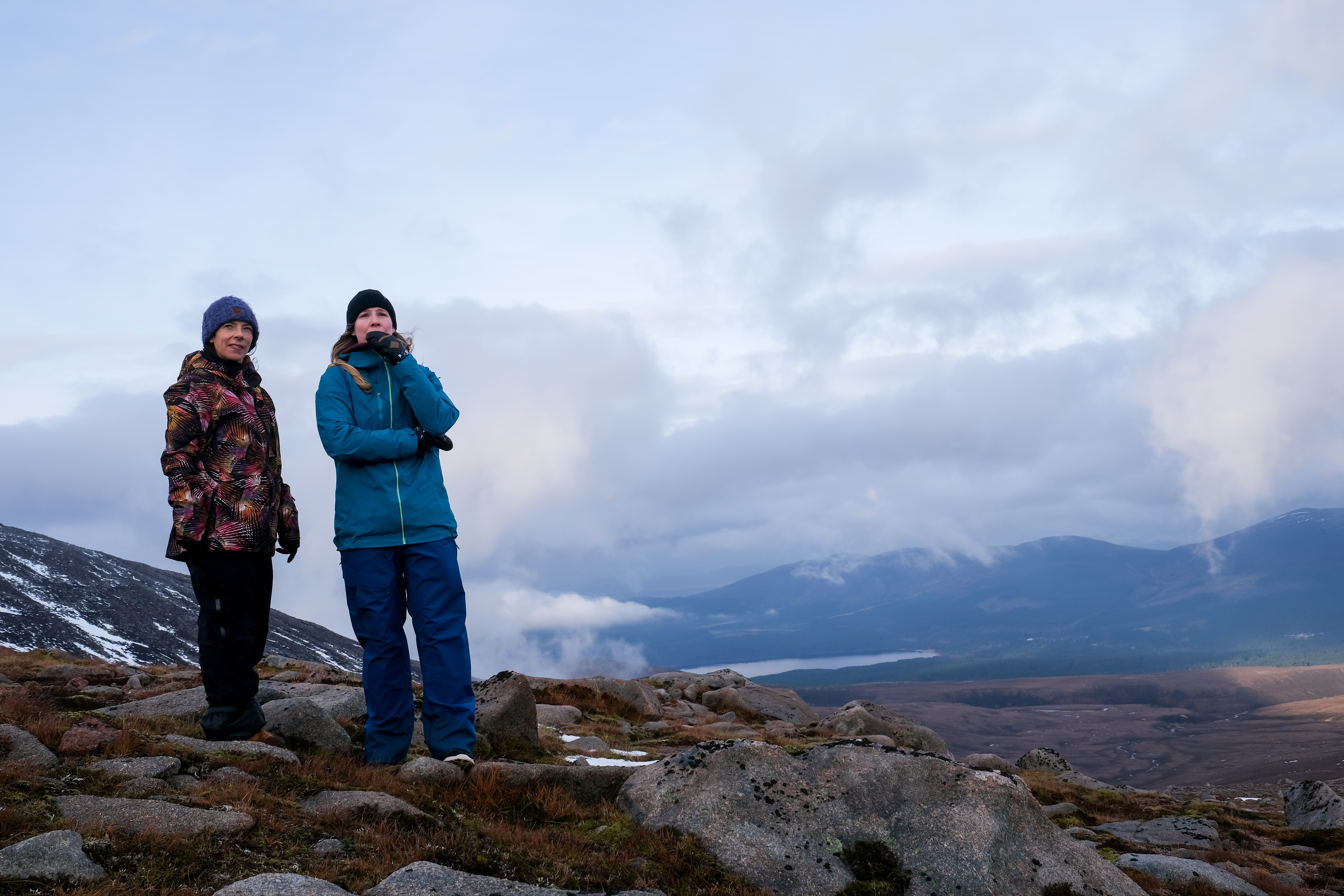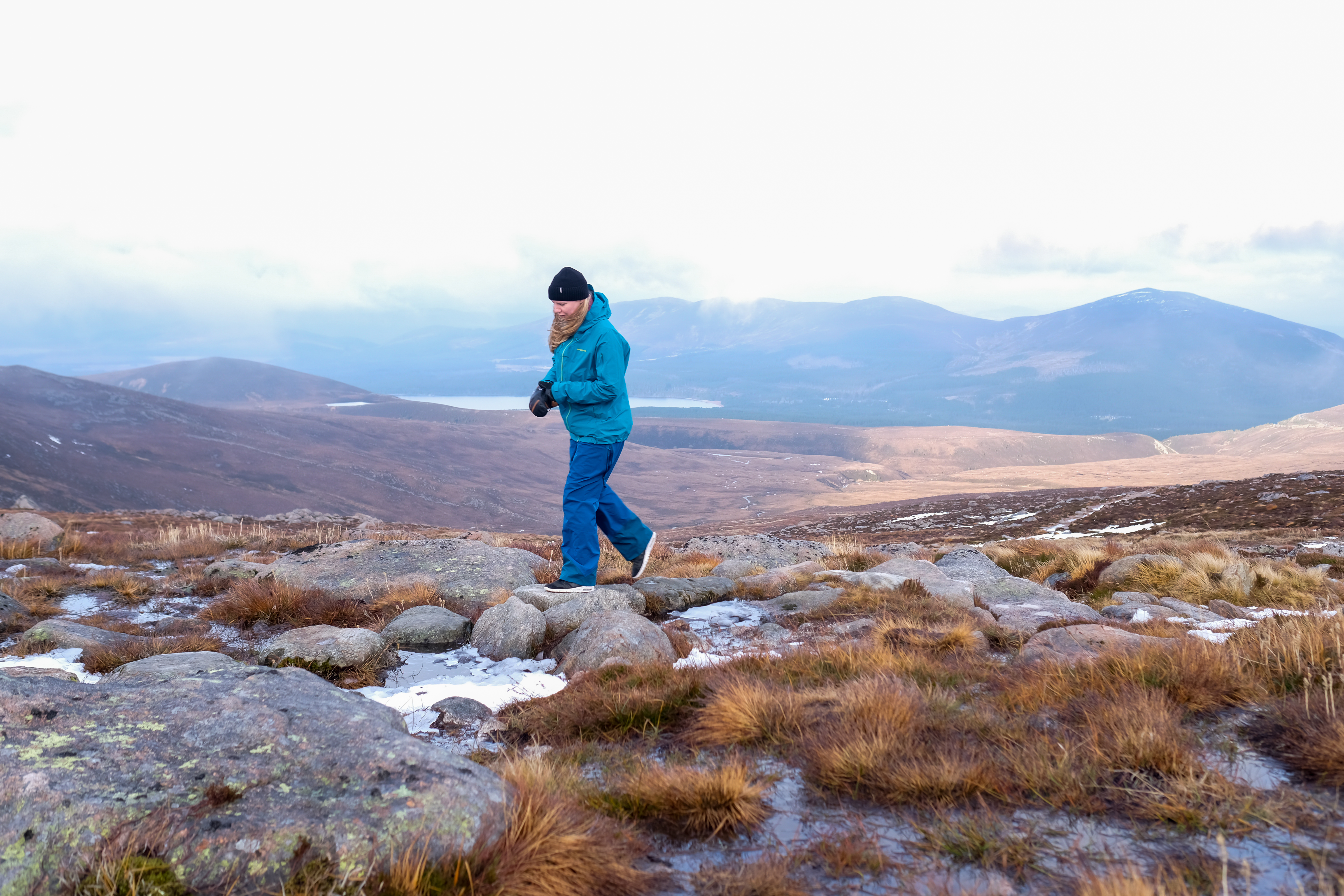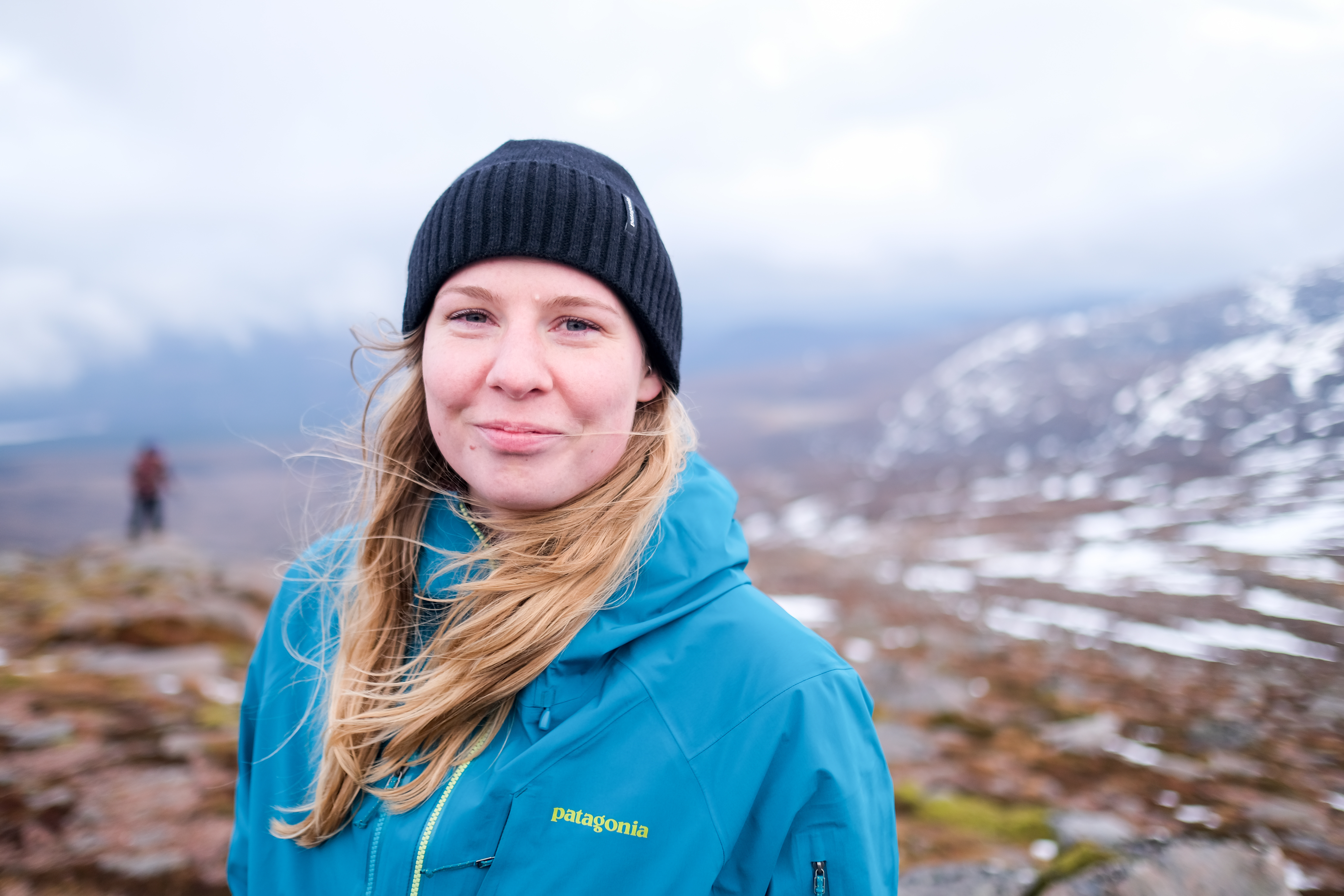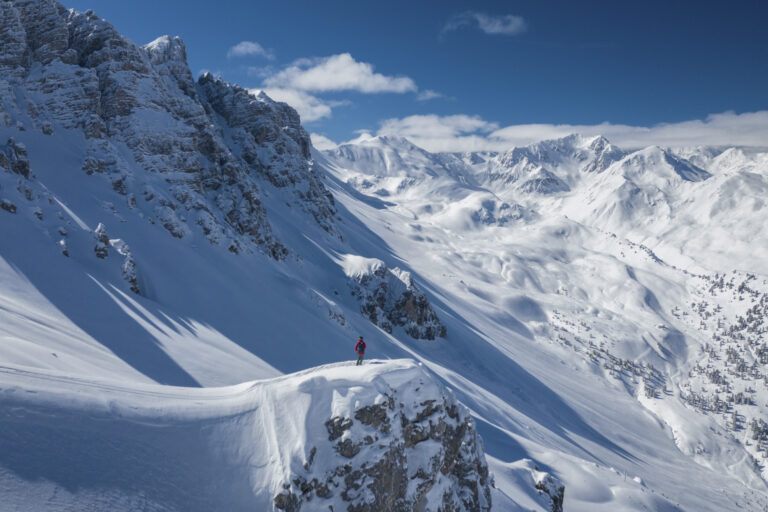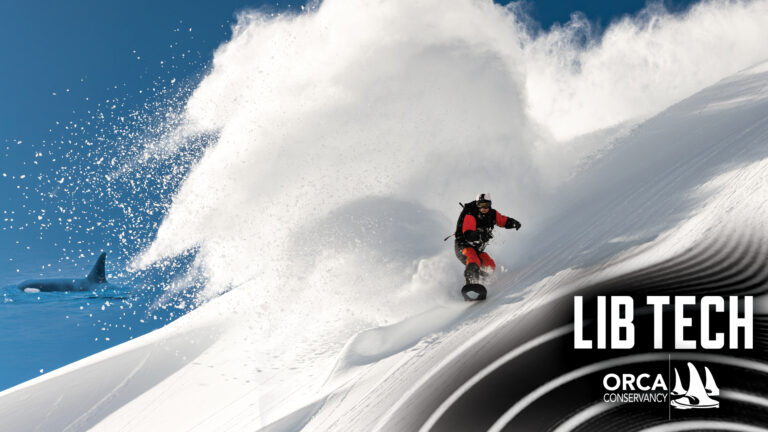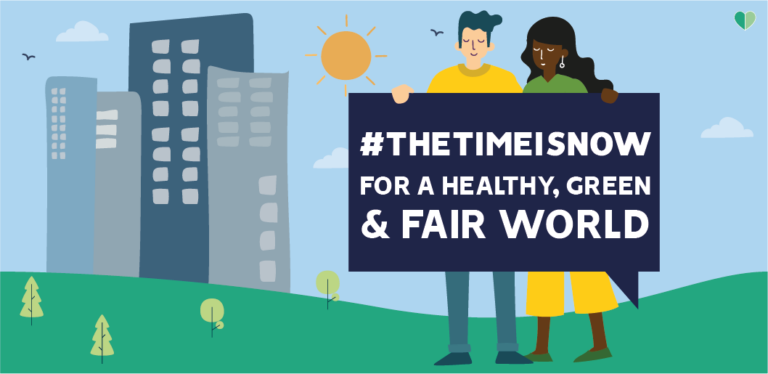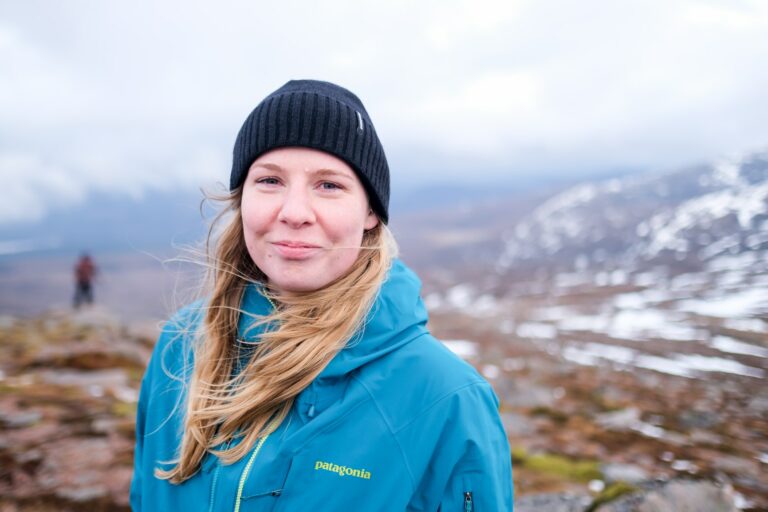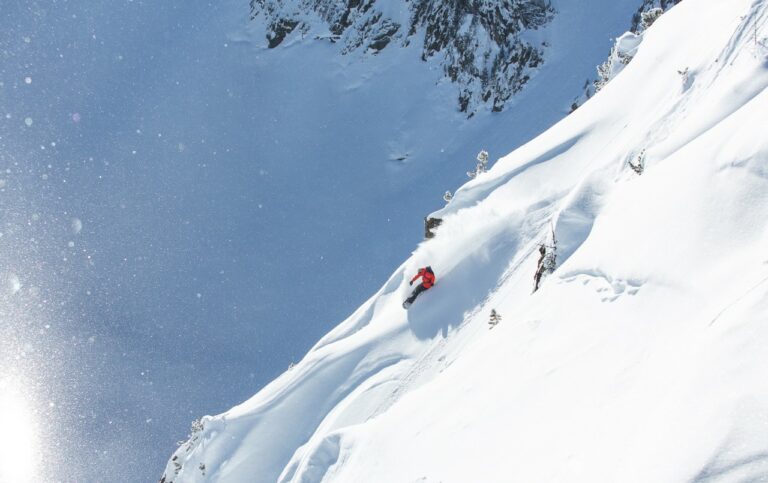Above PC: Hannah Bailey
Terrible puns aside, former golfer Lauren MacCallum is fiercely protective of her homeland, she’s like Greta Thunberg on craic. Climate activism wasn’t something Lauren had planned to become involved in, but like everything that she does, she ended up cannonballing in and landed on her feet. While somedays it might seem like a gruelling uphill battle, Lauren isn’t gonna throw in the towel, or drop it for that matter. Accidental Activism delves into why Lauren is so passionate about her surroundings, and is a stark look at how climate change is affecting her home. The Accidental Activism film launch is happening in Edinburgh on January 16th, pop along for an evening of snow activism and meet the woman, the myth, the legend LMac in person! Learn a bit more about Lauren and Accidental Activism below…
Can you explain who you are and where you currently live?
LM: I currently live in Aviemore in the Cairngorm National Park in the Highlands of Scotland. Day to day I am the general manager of climate advocacy charity Protect Our Winters UK, but I also occasionally appear on TV as part of the presenting team for BBC Scotland’s “The Adventure Show” and I recently I wrote a travel guide to Scotland called “Hidden Scotland”.
“In order to pull the circus of politicians up on their bullshit, you have to understand the policies”
Where and when did your interest in environmental activism/campaigning begin?
LM: Whether it’s land reform, climate change, or social justice, I think these things are all intertwined, impacting and influencing each other. I didn’t simply wake up one day and think, “I’m going to be engaged in environmental issues”. It has been a slow burner. But I would say 2012 was a turning point for me becoming engaged and going down the route of an activist. This was mainly because the Scottish Referendum campaign was in full swing, and I realised that, in order to pull the circus of politicians up on their bullshit, you have to understand the policies or, better still, understand them more than they do.
